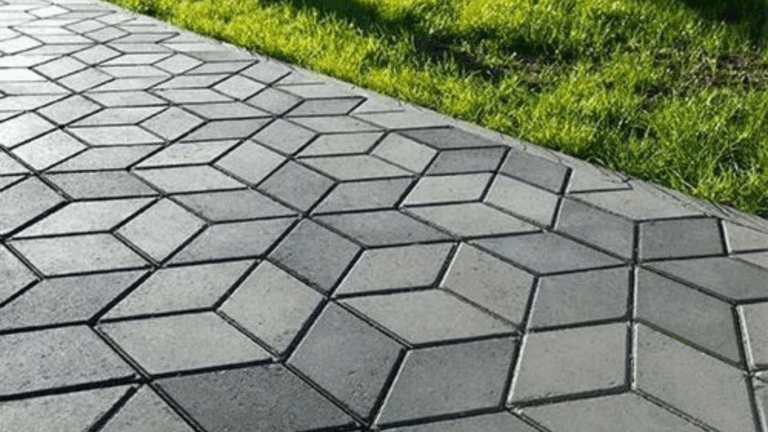What Does a Concrete Contractor Do?
to foundations, patios, and commercial floors. But behind every strong, long-lasting slab of concrete is a skilled professional who makes it happen: the concrete contractor.
If you’ve ever wondered what exactly a concrete contractor does, what services they provide, and why hiring one matters, this guide breaks it all down in simple terms.
Understanding the Role of a Concrete Contractor
A concrete contractor is a trained professional who specializes in working with concrete, one of the world’s most versatile and durable building materials. Their job goes far beyond pouring and finishing. They handle everything from site preparation and formwork installation to mixing, reinforcement, curing, and sealing.
Concrete contractors work on both residential and commercial projects, ensuring that every surface they install meets strength, durability, and aesthetic standards.
Whether it’s a new driveway, a foundation slab, or decorative stamped concrete, these professionals combine technical knowledge, precision, and artistry to deliver quality results.
Key Responsibilities of a Concrete Contractor
Concrete work involves several stages, and contractors manage each one carefully to ensure the best possible outcome. Here’s a breakdown of their major duties:
1. Site Evaluation and Preparation
Before any concrete is poured, the contractor evaluates the site. This includes checking soil conditions, slope, drainage, and access. They may also:
- Remove old concrete or debris
- Excavate and grade the area
- Set up a stable sub-base with gravel or crushed stone
Proper site preparation is essential to prevent future issues like cracking or uneven surfaces.
2. Formwork Installation
Formwork acts like a mold that holds the wet concrete in place until it hardens. Contractors use wood, steel, or plastic forms to shape the concrete according to the project’s specifications, whether it’s a square driveway or a curved patio.
Accurate formwork ensures the finished product is level, well-shaped, and properly aligned with other structures.
3. Mixing and Pouring Concrete
Once the forms are ready, the contractor mixes the concrete in precise ratios of cement, sand, gravel, and water. Depending on the job size, they may use ready-mix trucks or mix on-site.
The concrete is then poured into the forms and spread evenly to eliminate air pockets and voids that could weaken the structure.
4. Reinforcement
To increase strength and prevent cracking, contractors often reinforce concrete with steel rebar, wire mesh, or fibers. This is especially important for driveways, foundations, and heavy-load areas that must support vehicles or structures.
5. Finishing and Texturing
Finishing gives concrete its final appearance and texture. After pouring, contractors smooth the surface using tools like screeds and floats. They can also apply decorative finishes such as:
- Stamped concrete to mimic stone or brick
- Exposed aggregate for a textured look
- Colored concrete for a customized design
These techniques require experience and timing since concrete begins to harden soon after it’s poured.
6. Curing and Sealing
Curing is one of the most critical stages of concrete work. It involves keeping the concrete moist and at the right temperature for several days to allow it to reach maximum strength.
After curing, many contractors apply a sealant to protect the surface from moisture, stains, and wear. Proper curing and sealing ensure that the concrete remains durable and long-lasting.
7. Repairs and Resurfacing
Concrete contractors don’t just install new surfaces, they also repair, resurface, and restore existing ones. This includes:
- Filling cracks and holes
- Leveling uneven areas
- Applying overlays or coatings to improve appearance and performance
Regular maintenance and timely repairs can extend the lifespan of any concrete surface.
Types of Projects Concrete Contractors Handle
Concrete contractors work on a wide range of residential, commercial, and industrial projects. Some common examples include:
Residential Projects
- Driveways and sidewalks
- Patios and pool decks
- Foundations and garage floors
- Retaining walls and steps
- Decorative or stamped concrete features
Commercial & Industrial Projects
- Parking lots and curbs
- Warehouse and factory floors
- Building foundations and structural slabs
- Loading docks and ramps
- Commercial walkways and plazas
Each type of project demands a different approach, skill set, and equipment, which is why hiring an experienced contractor is essential.
Why Hiring a Professional Concrete Contractor Matters
While DIY concrete projects may seem appealing, concrete work is precise and time-sensitive. Even small mistakes can lead to cracking, uneven surfaces, or drainage problems.
Here’s why hiring a professional concrete contractor is a smart investment:
- Experience and Expertise – They know how to handle different mixes, weather conditions, and design challenges.
- Proper Equipment – Contractors use professional tools and machinery that ensure accuracy and efficiency.
- Quality and Durability – Correct pouring, curing, and sealing guarantee a long-lasting result.
- Time Savings – Experienced teams can complete projects much faster than DIY efforts.
- Compliance and Safety – Licensed contractors follow local codes, handle permits, and maintain safety on-site.
Hiring the right concrete contractor ensures your project looks great, performs well, and lasts for decades.
How to Choose the Right Concrete Contractor
Selecting a reliable contractor is key to a successful project. Keep these tips in mind:
- Check Credentials: Make sure the contractor is licensed, insured, and experienced in your project type.
- Read Reviews: Look for feedback from past clients and examples of completed work.
- Get Multiple Quotes: Compare prices, timelines, and scope of work before deciding.
- Ask About Warranties: Reputable contractors often provide guarantees for workmanship and materials.
- Inspect Communication: Choose someone who listens, explains clearly, and answers questions transparently.
A little research upfront can save you money and stress in the long run.
Final Thoughts
A concrete contractor’s work goes far beyond simply pouring cement. They handle planning, design, preparation, installation, finishing, and maintenance, ensuring every structure they build is strong, safe, and visually appealing.
Whether you’re upgrading your driveway, adding a patio, or building a new foundation, choosing a skilled and experienced concrete contractor ensures your investment stands the test of time.
If you’re planning a project, start by requesting a few local quotes, checking references, and asking about experience with your specific type of concrete work. The right professional will not only deliver a durable result but also help you achieve the perfect balance of function, quality, and design for your property.

